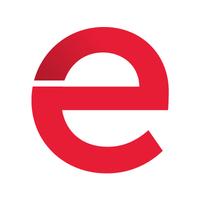From Stanford to Startup No.7 Combine and Share Ideas
Like Kev mentioned, I'm from Brazil originally, and I'll do all these interviews back home where entrepreneurship is still like a building process and it's not as much in the culture as it is here in the Valley. And they always ask me, "When did you have your idea?" "What a great idea you guys have! What struck you guys?" There was no one moment where we were like, 'Oh, yeah, photos with filters!' Ideas really are the result of a lot of these iteration steps that we've talked about earlier, and your job is just to explore the solution space until you figure out where in that solution space you fit. And it turns out people are always, 'Well, does my idea need to be the most unique thing in the world?' Nowadays, especially in the social space, ideas are combinatorial. That childhood exercise where you take different parts of the animals and you make a new animal out of it? That's a lot of what startups are like. You're saying like, well, there's things about Twitter we really like, but it frustrates us that we don't have an emotional connection with the content that we're receiving because it's not visual. And there's things we like about things like Hipstamatic with these cool ways of making your photos look better, but the photos get caught on the phone and you don't really get to connect with your friends through them. So these combinatorial ideas are really where you end up having these 'Aha!' moments later after you've explored the solution space rather than the shower idea that ends up killing them. And as we've mentioned before, in the sharing and discussing process is where those ideas get refined. So getting that consumer validation, going through those bar exams... we call them 'bar exams'. Like you're in the bar, can you explain your idea and show it off to your friend in a way that they're not going to be like... Well, it's really loud and people are drinking and... They have the other 50 things they want to do. And one thing I really want to emphasize is that careers are very much like a series of themes that you go through and explore in your career. If you look at Dennis Crowley at Foursquare, he's been working on that drive, on that idea around location and unlocking your city, for almost 10 years or more. He's probably been thinking about it... maybe sketching it as a kindergarten, I don't know. And we've made photo... just like kindergarten, right? We've been excited about photography and about communicating the real world for years. And probably whatever we do for the next 30 years, we'll have some hint of that forever. So very much so, your startup and your career is an expression of you and your co-founders in a way that expresses what are the themes that are going to recur throughout your careers. And you'll know when you hit upon that for yourself because you'll wake up every morning and you can't think of anything else. You're in the shower and you're like, 'Oh, we can do this different thing!' And that's when you know you've hit the great idea. It's not necessarily the idea. It's the theme. It's the drive. It's the problem you want to solve out in the real world. What question are you answering?

